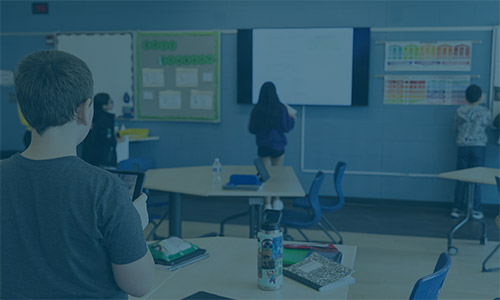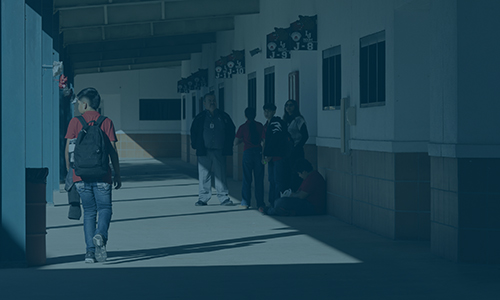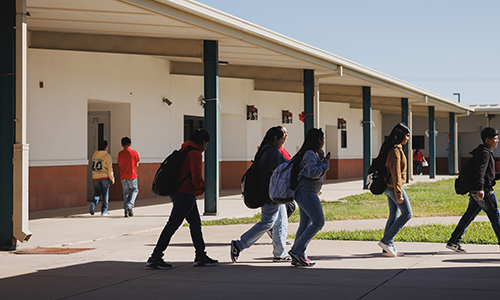Presentation
A “Lost Year” of Data? What Disruptions From COVID-19 Mean For Education Research
2020
By: Matthew Soldner, Megan Kuhfeld, Dan Goldhaber, Constance Lindsay, Allison Crean Davis

Description
This Bellwether Education Partners webinar brings together academic and government experts to discuss how education research can continue to offer meaningful, relevant information to policymakers and practitioners after the “lost year” of data from COVID disruptions to schools and testing, and how the pursuit of evidence to improve our education systems and policies can rebound from this moment. How should educators and evaluators measure student performance moving forward, and what proof points can they use to guide their efforts? What stopgaps are researchers putting in place to address missing data, and how is the U.S. Department of Education considering long-term data collection efforts? What interventions can be used remotely to support equity and inclusion?
See MoreRelated Topics


From loss to recovery: Diverging paths and uneven gains across schools
This research brief examines two components of school recovery post-COVID pandemic to better understand recovery patterns. These include initial declines in average achievement and post-pandemic gains in average achievement across schools. By understanding these different recovery patterns, the brief offers insights to policy makers and leaders where to invest for long-term improvement and targeting support where it is needed most.
By: Emily Morton, Megan Kuhfeld, Ayesha K. Hashim, Scott J. Peters
Topics: COVID-19 & schools, Growth, High-growth schools & practices, Seasonal learning patterns & summer loss


Tech Appendix for “From loss to recovery: Diverging paths and uneven gains across schools”
This is the technical appendix to the research brief titled, “From loss to recovery: Diverging paths and uneven gains across schools,” which examines two components of school recovery post-COVID pandemic to better understand recovery patterns.
By: Emily Morton, Megan Kuhfeld, Ayesha K. Hashim, Scott J. Peters
Topics: COVID-19 & schools, Growth, High-growth schools & practices, Seasonal learning patterns & summer loss


MAP Growth Goal Explorer User’s Guide and FAQ
This user’s guide for the MAP Growth Goal Explorer describes how to use this interactive tool, the benchmarks it uses to provide context on student growth goals, a framework for goal setting, instructions for how to download information from the tool, and answers to frequently asked questions.
Topics: Innovations in reporting & assessment, Empowering educators


Lessons in resilience: A playbook for recovery from natural disasters
This research brief is a follow-up report to NWEA’s brief examining the impact of extreme weather disruptions to teaching and learning. This report offers practical strategies and recommendations to school districts for preparing for extreme weather events to recover faster and lessen the impact on students and teachers.
By: Megan Kuhfeld, James Soland
Topics: COVID-19 & schools, Growth, Seasonal learning patterns & summer loss


Post-Pandemic School Closure Trends: Schools Serving Black Students Disproportionately Closed
This NWEA white paper explores the impacts of permanent school closures on communities. Findings suggest that despite challenges facing districts and the increased rhetoric around closures, most districts have continued to keep schools open; however, when schools were permanently closed, all communities are not affected equally: high poverty and high percentage Black students are more likely to close.
By: Jazmin Isaacs, Megan Kuhfeld, Sofia Postell, Ayesha K. Hashim
Topics: COVID-19 & schools, Growth


School’s in for Summer: A Scalable and Effective Post-Pandemic Academic Intervention
New research report looks at the effects of post-pandemic summer school on student achievement and district recovery, how program design and implementation aligned with recommended best practices, and how the scale and impact of summer school compared to other interventions, like tutoring.
By: Emily Morton, Dan Goldhaber, Andrew McEachin, Thomas J. Kane
Topics: COVID-19 & schools, Growth, Seasonal learning patterns & summer loss


NWEA’s MAP Growth National Dashboard provides timely trends and data on U.S. student academic achievement and growth for grades K-8. This free public tool supports district leaders, state and federal policymakers, and other education stakeholders in interpreting local data within a broader national and state context. It helps identify areas of strength, shine light on disparities, and ground policy conversations in evidence.
Products: MAP Growth
Topics: COVID-19 & schools, Equity, Growth


